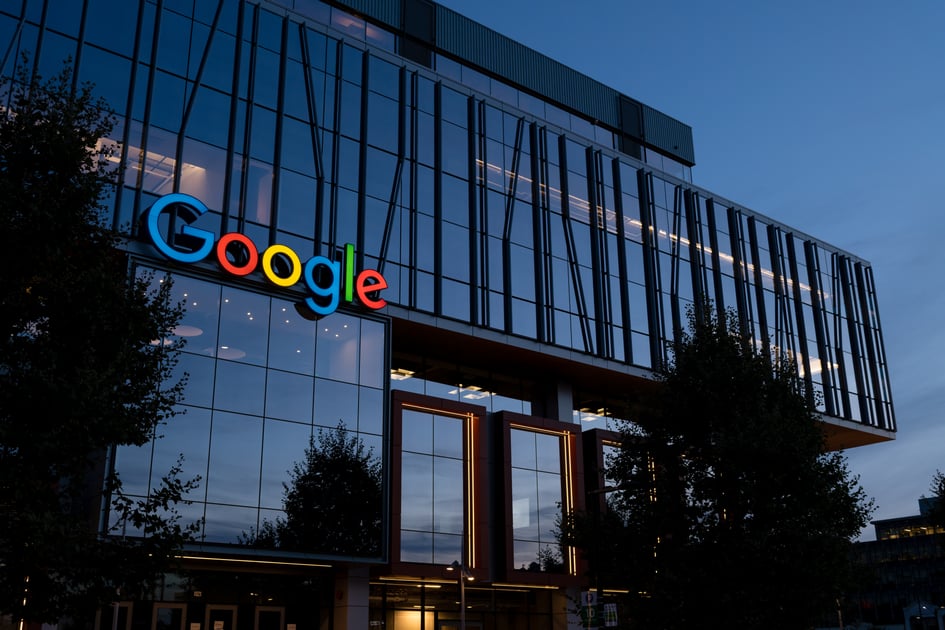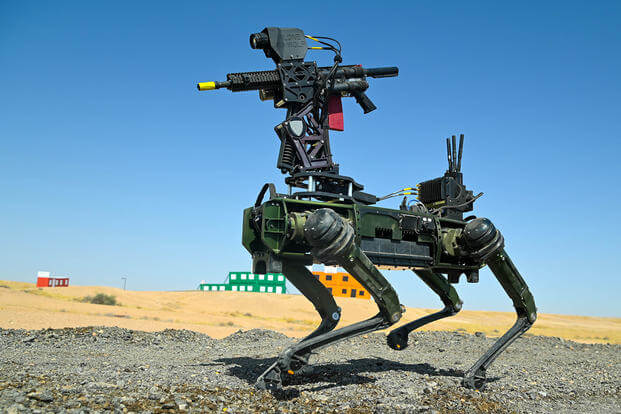- TECHSWU
- Posts
- TECHSWU #114
TECHSWU #114

In a bold move that signifies its commitment to leading the AI revolution, Google recently forked out a whopping $2.7 billion to bring back AI luminary Noam Shazeer.
Known for his groundbreaking work in natural language processing, Shazeer's return is seen as a strategic play to enhance Google's competitive edge against rivals like OpenAI and Microsoft. As AI becomes a cornerstone of technological advancement, Google's investment reflects a clear ambition: to reclaim its position at the forefront of innovation.
By harnessing Shazeer’s expertise, Google aims to redefine user experiences and push the boundaries of what's possible in artificial intelligence. As the landscape shifts, all eyes are on Google to see how this game-changing hire will impact the future of AI technologies.

Sony's PlayStation Network (PSN) experienced a significant global outage on October 1, 2024, affecting gamers worldwide. Reports surfaced early in the morning around 6 am, with countless players unable to log into their accounts or access online multiplayer games.
Even new users faced hurdles when attempting to create accounts. Sony acknowledged the issue on their status support page, stating, "You might have difficulty launching games, apps, or network features.
We’re working to resolve the issue as soon as possible," and thanked the gaming community for their patience. Although offline games remained unaffected, the disruption left many avid players frustrated.
Sony is yet to provide a timeline for a full resolution. This outage comes shortly after the recent launch of the highly anticipated PlayStation 5 Pro, adding an extra layer of disappointment for fans eager to engage with their new consoles online.

In a thought-provoking paper from the University of Kansas, debate coach Brett Bricker and co-author Jacob Justice argue that the rise of artificial intelligence (AI) elevates the value of debate rather than diminishes it. They contend that while AI poses challenges, it highlights the essential skills fostered in debate, such as critical thinking, clear communication, and empathy.
In today’s polarized society, where social media algorithms often shield individuals from diverse perspectives, traditional debate forces students to engage with opposing viewpoints, enhancing their understanding and empathy. As academia navigates the complexities brought on by AI, the authors stress the urgency of establishing guidelines to preserve the integrity of liberal arts education.
Bricker champions debate as a vital tool for developing the skills necessary to tackle the challenges of the AI era and combat the declining emphasis on writing and critical thought.


OpenAI has secured a whopping $6.6 billion in new funding, propelling its valuation to an impressive $157 billion.
This milestone cements the company’s status as one of the most highly valued startups ever, driving expectations for widespread adoption of its ChatGPT technology. However, this financial triumph comes amid internal turmoil, highlighted by the resignation of Chief Technology Officer Mira Murati and concerns over the sustainability of its hefty investments in data centers and chips.
Despite these challenges, CEO Sam Altman expressed determination, stating that the funds will empower OpenAI to enhance its position in advanced AI research and develop innovative tools for various applications. Backed by notable names like Nvidia and SoftBank, this funding marks a pivotal shift for OpenAI, which aims to balance profitability with its original mission to safeguard the future of superintelligent AI amidst growing corporate competition and ethical concerns.

The U.S.
Army is testing high-tech "robot dogs" armed with AI-enabled rifles in the Middle East, showcasing their capabilities as counter-drone tools for service members. Specifically, a Ghost Robotics Vision 60 Quadrupedal-Unmanned Ground Vehicle (Q-UGV) equipped with a rotating rifle turret recently underwent trials at the Red Sands Integrated Experimentation Center in Saudi Arabia.
This futuristic technology is part of the Army's efforts to enhance drone defense, aiming for cost-effective alternatives to traditional missile systems. While these robotic canines are designed for roles from perimeter security to engaging airborne threats, their real-world deployment remains uncertain.
They symbolize a growing trend within military technology, paralleling other nations' advancements in weaponized robotics. As the battlefield evolves, the U.
S. is exploring how human-machine integration could redefine combat strategies, ultimately enhancing the safety and efficiency of troops in conflict zones.

Microsoft has given its Copilot homepage a stunning makeover, making it more user-friendly with several exciting new features! The highlight is the introduction of “Copilot Daily,” which allows users to enjoy a quick 30-minute summary of global events, perfect for staying in the loop. Additionally, the revamped interface boasts a Voice Mode, enabling conversations with the AI chatbot, complete with four distinct voice options: Meadow, Canyon, Grove, and Wave! You can now engage through voice or text seamlessly.
The new homepage also includes quick access to past conversations and the ability to upload images and documents for analysis. Plus, the interface caters to personal preferences with light and dark themes, enhancing the user experience.

In a bold smuggling attempt, a woman was apprehended at Delhi's Indira Gandhi International Airport while trying to bring 26 iPhone 16 Pro Max devices from Hong Kong into India. The iPhones, cleverly concealed in a vanity bag and wrapped in tissue paper, were intercepted by customs officials acting on specific intelligence tips.
With the iPhone 16 series only recently launched, the market value of the seized devices is substantial; the prices for the Pro Max start at an eye-watering Rs 1,44,900. This incident highlights ongoing concerns over illegal imports as authorities ramp up vigilance in response to rising demand for the latest gadgets.
Investigations are underway to uncover any larger smuggling networks at play. This isn't the first time such a situation has arisen, and it underscores the need for continuous monitoring at international airports.


Qualcomm is making waves in the tech world by developing successors to its Snapdragon X Elite processors under the intriguing codename "Project Glymur." This new line promises enhanced performance for Windows PCs and marks a shift in naming conventions for the company.
The Snapdragon X Elite, launched in October 2023, set a high standard, and the upcoming SC8480XP series aims to push those boundaries further, with specs still tightly under wraps. Alongside this, Qualcomm is also working on a first-generation Snapdragon X Plus model, touted to be the most budget-friendly entry in the Snapdragon X lineup.
With these innovations on the horizon, Qualcomm is positioning itself to deliver cutting-edge technology that'll keep Windows PCs competitive in the ever-evolving tech landscape.

Apple's iPhone 16 series has made its debut in India with a starting price of Rs 79,900, mirroring the launch price of its predecessor, the iPhone 15. However, this apparent pricing stability comes with a catch: the cost to produce the iPhone 16 has risen significantly.
Analysts from TD Cowen reveal that advanced components and enhanced features, such as the new A18 chip and upgraded camera modules, have driven manufacturing costs higher—now approximately $485 for the Pro Max compared to $453 for the previous model. While consumers enjoy the same sticker price for now, the trend raises concerns about potential future price hikes as Apple absorbs these increased expenses in a competitive market.
Amazon is supercharging its Fire tablets with exciting new AI tools! The freshly unveiled Fire HD 8 models, along with select older versions, will now feature a Writing Assist tool—perfect for polishing your writing and adding a professional touch to your messages. Additionally, the innovative Webpage Summaries feature automatically distills websites into concise takeaways, getting you up to speed in seconds.
But that's not all! The Wallpaper Creator lets you unleash your creativity by generating unique, high-resolution backgrounds based on your prompts. These features not only enhance the user experience but also reflect Amazon's broader efforts in AI, like their shopping chatbot and upcoming Alexa upgrades.

As the gaming industry rapidly embraces artificial intelligence (AI) to enhance game development, giants like Gaxos.ai, Sony's PlayStation, and Series Entertainment are leading the charge with innovative AI tools.
Gaxos.ai’s new platform aims to streamline content creation for developers, while Sony utilizes AI to automate subtitling in projects like Marvel’s Spider-Man 2, touting efficiency and potential revenue growth.
In stark contrast, Nintendo, with legendary designer Shigeru Miyamoto at the helm, remains unyielding, opting not to integrate AI into their game creation process. This bold decision stands out in an industry where 62% of studios already harness AI technology.
Nintendo focuses on its trademark imaginative gameplay, as demonstrated in titles like Breath of the Wild, proving that creativity and aesthetics can triumph over pure technical prowess. As the debate around AI's implications continues, Nintendo's unique stance raises questions about the balance between technology and artistry in gaming.

California Governor Gavin Newsom has vetoed the controversial AI safety bill SB 1047, which aimed to hold AI companies accountable for potential disruptions caused by their technology. While the bill had garnered support from various legislators and even tech leaders like Elon Musk, Newsom expressed concerns that it would create a false sense of security regarding AI's risks.
The proposed legislation sought to enforce strict safety measures and liability for AI developers, particularly in critical areas such as power generation. Opponents worried it could stifle innovation and drive tech companies away from California.
In lieu of the bill, Newsom plans to collaborate with industry leaders to develop more balanced regulations, asserting the need for guardrails that promote innovation without compromising public safety. The debate highlights the ongoing struggle to navigate the fine line between technological advancement and ensuring safety in the rapidly evolving AI landscape.

In a thought-provoking interview, Carnegie Mellon University’s Anand Rao emphasizes the pivotal role of responsible artificial intelligence (AI) in healthcare. With his extensive background in AI and its societal impact, Rao argues that implementing trustworthy AI is non-negotiable in medical settings, where lives hang in the balance.
Responsible AI should enhance human decision-making rather than replace it, ensuring that systems are safe, explainable, and compliant with privacy laws. As generative AI gains traction, he warns of its potential missteps and stresses the need for rigorous oversight to mitigate risk.
Furthermore, he highlights the importance of educating the public on the limitations of generative AI, particularly in medical contexts, to prevent disastrous outcomes. Overall, Rao’s insights offer a roadmap for merging innovation with safety in healthcare technology, underscoring the critical responsibility organizations must shoulder in adopting AI solutions.

The article "150 Top AI Companies (2024): Visionaries Driving the AI Revolution" showcases the trailblazers in the AI sector that are revolutionizing industries. Following the ChatGPT boom in November 2022, generative AI, machine learning, and automation have surged in significance.
The list features giants like Microsoft and Google, along with pioneering startups like OpenAI, leveraging AI to enhance healthcare, finance, education, and more. Innovations such as Cleerly's cardiovascular imaging and ClosedLoop's healthcare solutions exemplify the transformative impact of AI.
The retail space is also thriving, with firms like Shelf Engine improving inventory and customer interactions. Additionally, the article highlights efforts by organizations advocating for responsible AI and diversity in tech development.
Overall, these key players are not just part of the AI evolution—they are driving it, promising to reshape our world in ways we can't yet imagine.